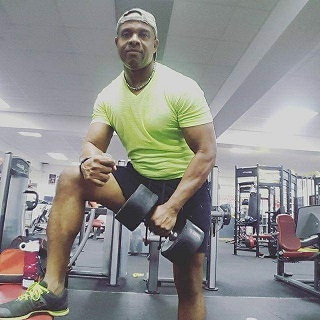SQUAT OR SUFFER
BY: FITZ-GEORGE RATTRAY
While sitting in a parking lot I watched people walking back and forth, various ages, sizes and genders and the one thing in common was the indications of present or future aches and pains, and eventually crippling back and leg problems requiring anything from a walking stick, to a walker to a wheelchair and assisted living. But is this the absolute fate of all humans? Is this our long-life award? No, it really is not, but how can we avoid it? Squat, just squat down consistently.
Why Squat?
Squats are called the king of exercises and it is not without good reason. I remember in my youth, my father said to me, “if you only do one exercise, squat”. The importance of squatting comes from the fact that the leg muscles are the largest group of muscles in the human body. They are not only responsible for locomotion but because of their effect, it also promotes metabolic, hormonal and cardio vascular health. The effect is so strong that squatting is also known as the anabolic exercise, promoting overall development.
Strengthening the leg muscles also mean increased stability, joint strength and balance, avoiding crippling knee pains, stumbling, falling and breaking bones. Squatting will also help to maintain bone density and strength.
Why can’t I just walk?
When you walk you move your legs in a truly short range of motion. Simply put you are only hinging at your hips and flicking your lower leg forward in a series of losing and regaining balance. Yes, walking is great for keeping your hip joint moist and healthy and for its cardio vascular benefits, especially if done briskly. Sadly, it does almost nothing for the range of motion to activate all the fibers required to properly strengthen all the primary and supporting muscles in the lower body.
So, you say to yourself, why do I have to squat? Our ancient ancestors didn’t have to squat. Well, firstly most of them didn’t live as long as you most likely will, secondly, yes, they did, they absolutely did, every day. Toilets and other implements of that sort are new in the course of human history. For countless generations your ancestors, as you do, pooped, and in order to do so they had to squat, often. Of course, there is also the fact that chairs and beds were not a thing for much of human history and to rest they again had to squat to the ground and get up from ground level.
The lack of this activity in our modern extended lives is costing us greatly. We are in pain and need help from support implements, and younger humans who have not yet hit that wall of non-squatting debilitation.
How do I squat to avoid suffering?
The important thing is to have your feet comfortably under you, just outside of shoulder width. Make sure your footing is level and stable and there are no objects around you. Weights and added resistance are not essential at first but will eventually be super useful for continued strengthening.
Swing your hips back as if sitting to a stool or chair behind you, keeping your eyes and chest forward. Do not bend over or down, try to keep your torso upright.
At first squat down as deeply as is comfortable, but eventually you want to reach the correct minimum depth, which is with your thigh parallel to the ground, inhale going down and exhale going up. Keep your core tight and push through your heels.
But squatting is so hard for me!
If you have discomfort in your knees try wider style squats such as sumo or plie squats and if you are unsure about your strength try squatting with a stable chair or bench (sit-stands, bench squats). Make the effort; even if you have real medical problems, get connected with a physiotherapist who can get you to the point where you can squat safely as not doing so will only make what you thought was bad much worse with time.
So, squat, no matter how little, at least twice per week, 15 times break and do 15 more, and work your way up from there. It will be more than worth it. Avoid the suffering shuffle, stay among the strong and mobile, squat.





